Mississippians
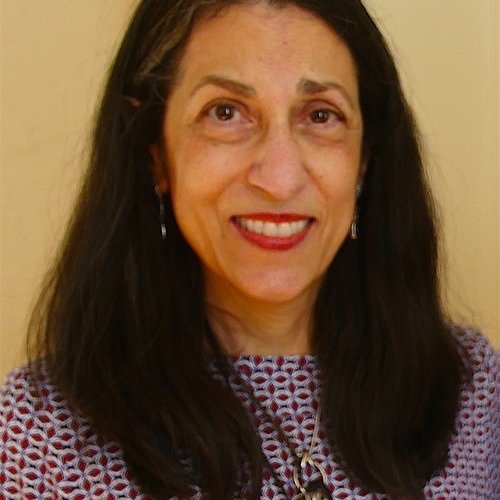
Mary Tonos Brantley lives in Madison but grew up in Greenville attending St. Joseph Catholic Church and St. Joseph Catholic School. She recently retired from her longtime position as English instructor and chair of the English Department at Holmes Community College in Jackson.
Her maternal grandfather, Shakralla Sam Alracy, came to the United States from Syria, immigrating through El Paso in 1906, when he was thirteen years old. In 1915 he married Mary’s grandmother Nazira Marie Hallal, who was born in New York City. Mary’s mother’s family “made their way to Coahoma County and settled in Clarksdale,” she said, “and eventually moved the family to Shaw, Mississippi, where, to my knowledge, they were the only Lebanese people.”
The immigration story of Mary’s paternal grandfather, Mike Saliba Tonos, is less-well documented, but the family believes that he came to America with his mother, Martha, and her father’s mother, Elmaz, and worked in a factory in Upstate New York until they could earn enough to travel to the Delta. They settled in Greenville and opened a grocery store. In fact, both of Mary’s grandfather’s owned grocery stores, her mother’s father also owning a dry goods store and a hotel.
Mary’s parents’ families were Catholic, which has traditionally been a common religion, if not the predominant faith, among Lebanese families in Mississippi. Her mother, Billie Rossie Tonos, taught school at St. Rose of Lima Academy—a predecessor to St. Joseph School—in Greenville, which was staffed by the Sisters of Mercy until the school was replaced by St. Joseph Catholic School in 1950. Mrs. Tonos taught for several decades thereafter.
As a way of maintaining and nurturing a Lebanese identity, Mary has been active in the Cedars of Lebanon Club in Jackson since around 2000. “The main way for me to embrace my culture as an adult has been through the Lebanese Club,” she said. Her parents were active in the club in Greenville, of which Dave Sherman was the longtime president.
Mary’s brother is John Michael “Mike” Tonos, Jr., and Keith Fulcher was the principal of St. Joseph Junior High in Jackson when her son was a student there. Both Mike and Keith, along with Dave Sherman, are Lebanese in Mississippi research participants, and each of their oral histories are included in this study.
This interview took place in Oxford, Mississippi, on November 24, 2017.
Audio Clips
On her grandparents coming to America and opening businesses
On dance as a way to maintain Lebanese traditions
On both the inclusiveness and internal conflict of being Lebanese
Selections from audio clips
“When we were growing up and we started talking about their family, I just wanted to— I invisibly put stoppers in my ears. Just because it was a little bit embarrassing to be Lebanese when you were trying to be popular and cool and American. You didn’t want to hear the stories. That’s all they seemed to do was talk about the food and the stories. And so there are some bits and pieces that I wish I had asked about.”
“I remember my son and me going to Leland, to my Uncle Fred Abide’s funeral. He said on the way back, ‘Mom, it’s so funny to be in a room full of people who look like you.’ I knew what he meant. And he could feel it. [The kids] could feel it, you know? It was one of those unspoken things.”
—Mary Tonos Brantley
Photos
Full sized images can be downloaded (see hyperlinks).
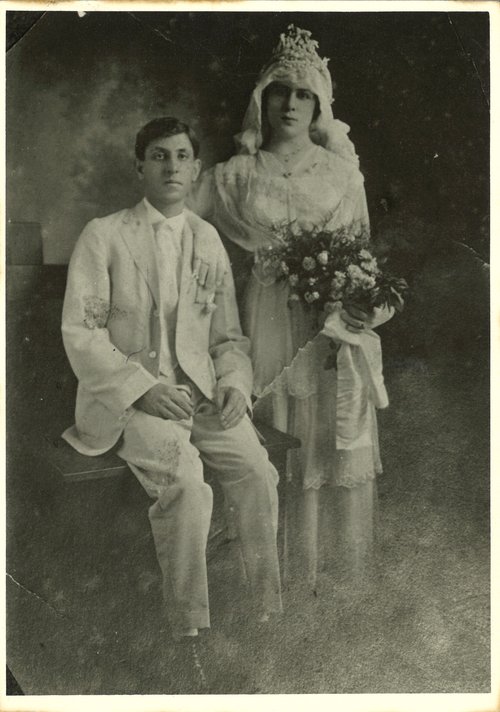
Wedding photo of Shakralla Sam Alracy and Nazira Marie Hallal Rossie, August 15, 1915
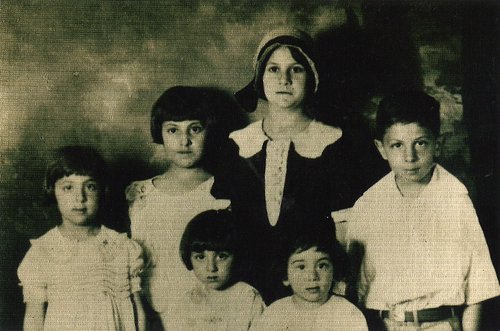
Portrait of Rossie children (mother of Mary, seated, on right)
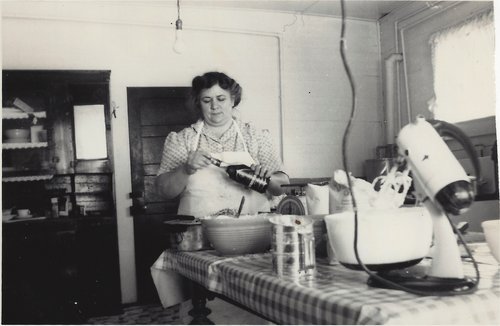
Nazira Rossie in kitchen in Shaw, Miss.
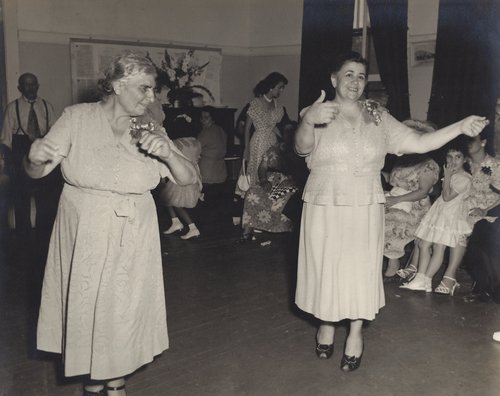
Grandmothers (left) Elmaz Tonos and (right) Nazira Rossie doing the dabke, a dance.
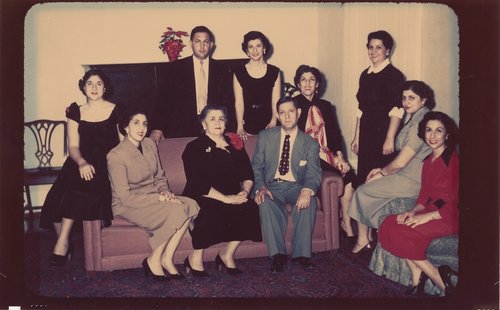
Rossie family portrait taken in their living quarters above their store in Shaw, Mississippi
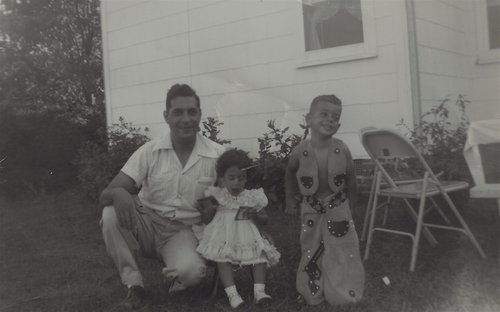
Mary, brother Mike, and father, mid-1950s, Greenville
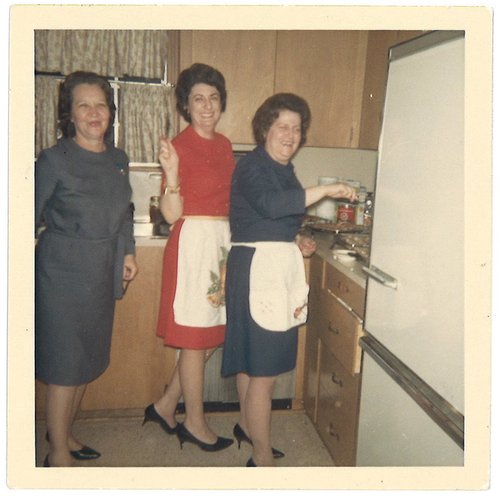
(left) Ladell Sherman, (center) Rubie Sherman, (right) Berenice Tonos, January 1964
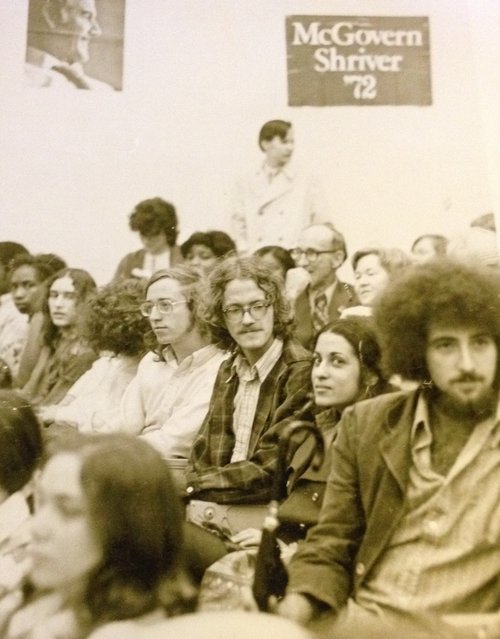
Mary, bottom right, a student at Millsaps College in Jackson
